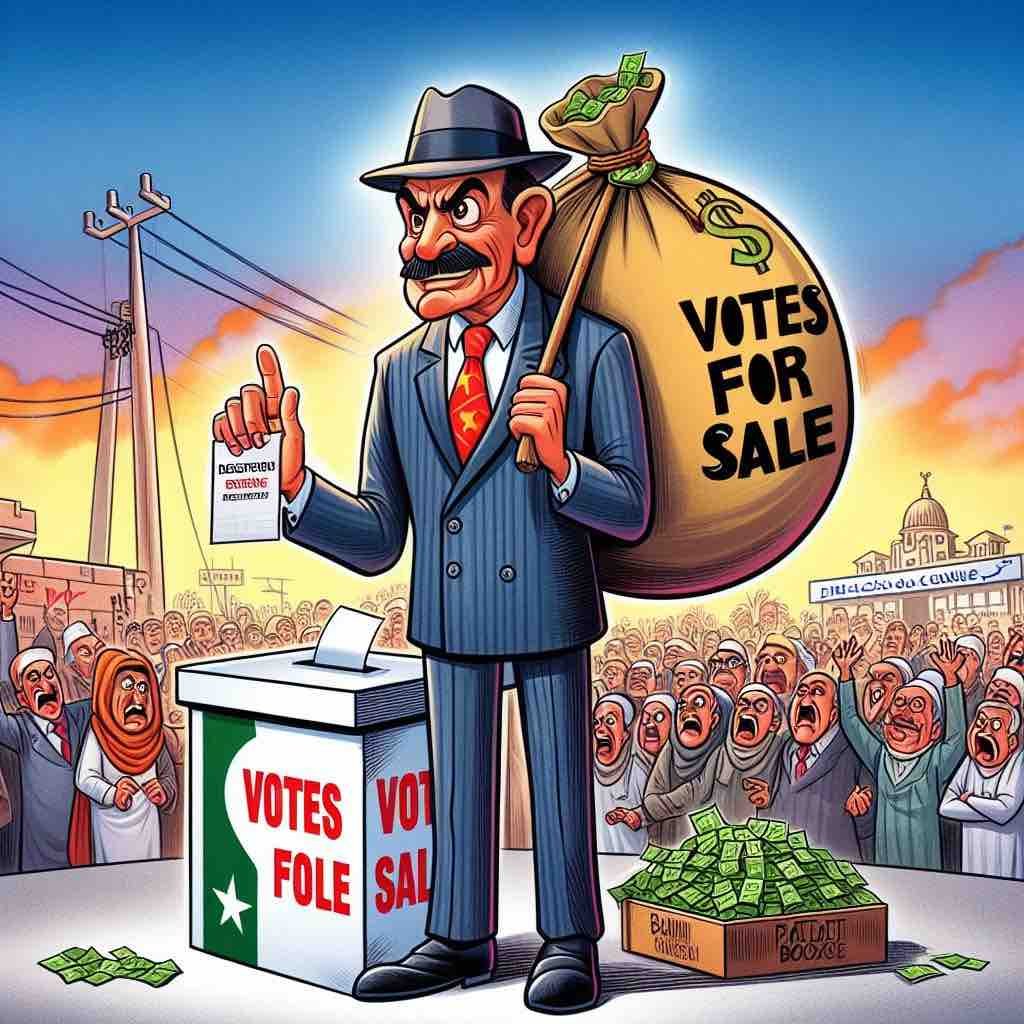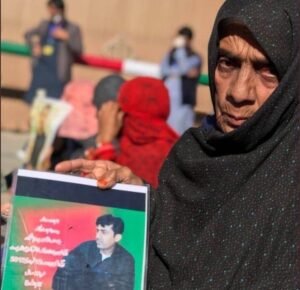Upholding Democracy in Pakistan: An Unfulfilled and Distant Dream for Pakistanis

Image @Microsoft Bing
By A. Shafaq
Pakistan finds itself at square one in its democratic journey following the controversial February 8th elections. Pakistan Army was able to steal the mandate from the people and is in the process of putting a de jure ‘elected’ government in place for the international audience. Amid allegations of electoral rigging, protests against government crackdowns, and concerns over the erosion of human rights, the fragility of Pakistani democracy is evident.
Pakistan’s political landscape has long been influenced by military interventions, undermining the integrity of its democratic institutions. The imprisonment of former Prime Minister Imran Khan and the suppression of opposition parties prior to the February 8th elections underscore the persistent role of the military in shaping the country’s governance. Hina Jilani, a leading human rights lawyer and pro-democracy activist, emphasizes the military’s tendency to interfere in politics, citing concerns over its impact on democratic processes.
The February 8th elections were plagued by allegations of electoral rigging and irregularities, casting doubt on the fairness of the electoral process. Reports of pre-poll vote manipulation, restrictions on campaigning, and the suspension of internet services further tarnished the credibility of the elections. Observers, including prominent human rights advocates expressed scepticism about the legitimacy of the results, pointing to a systematic effort to tilt the playing field in favor of certain political factions. Senior Pakistan Government officials who were part of the election machinery has accepted to the rigging and mentioned that they have acted on the pressure from ‘Forces’.
In response to this electoral fraud, protests erupted across Pakistan, with citizens demanding accountability and transparency. However, these demonstrations were met with harsh measures from law enforcement agencies, exacerbating tensions and widening the gap between the government and the populace. The Committee to Protect Journalists (CPJ) and human rights organizations in Pakistan raised concerns over the restrictions on social media platforms, highlighting the government’s efforts to suppress dissenting voices.
The Pakistani government’s crackdown on dissent and curtailment of fundamental freedoms have deepened concerns about the erosion of human rights. The suspension of social media platforms, arbitrary arrests of journalists and activists, and the imposition of restrictive laws have stifled dissent and undermined civil liberties. Human rights activists have called for the restoration of freedom of expression and the protection of basic human rights in Pakistan.
Pakistan faces significant political and economic challenges as it grapples with uncertainty in the aftermath of the contested elections. The fractured political landscape, characterized by coalition negotiations and a lack of parliamentary majority, underscores the fragility of the democratic process. Moreover, the looming economic crisis, exacerbated by inflation and debt burden, poses formidable challenges to the country’s stability.
With a federal government being formed at the behest of Pakistan Army not having the mandate and confidence of people, it is least expected that they would work for the betterment of the Pakistan economy. Corruption is bound to increase and each of the stakeholders including those in Army would milk people’s money and the bailout from IMF for their personal benefits.
The fragile state of Pakistan’s economy exacerbates the challenges posed by political instability. High inflation, rising debt burden, and a looming balance of payments crisis have pushed the country to the brink of economic collapse. The absence of a stable government capable of implementing much-needed economic reforms further exacerbates the country’s economic woes. Economic analysts warn that the continued political uncertainty could lead to further deterioration of the economy and deepen the country’s financial crisis.
Pakistan’s democratic journey is fraught with challenges, from military interference to electoral rigging and economic instability. As the country grapples with political uncertainty and economic distress, the resilience of its democratic institutions and the determination of its people will be put to the test. But there appears to be no light at the end of tunnel until the primacy of Pakistan Army over elected representatives is changed.
A. Shafaq (pseudonym) is a researcher and lecturer at one of the private universities in Kabul.
Note: The contents of the article are of sole responsibility of the author. Afghan Diaspora Network will not be responsible for any inaccurate or incorrect statement in the articles.











